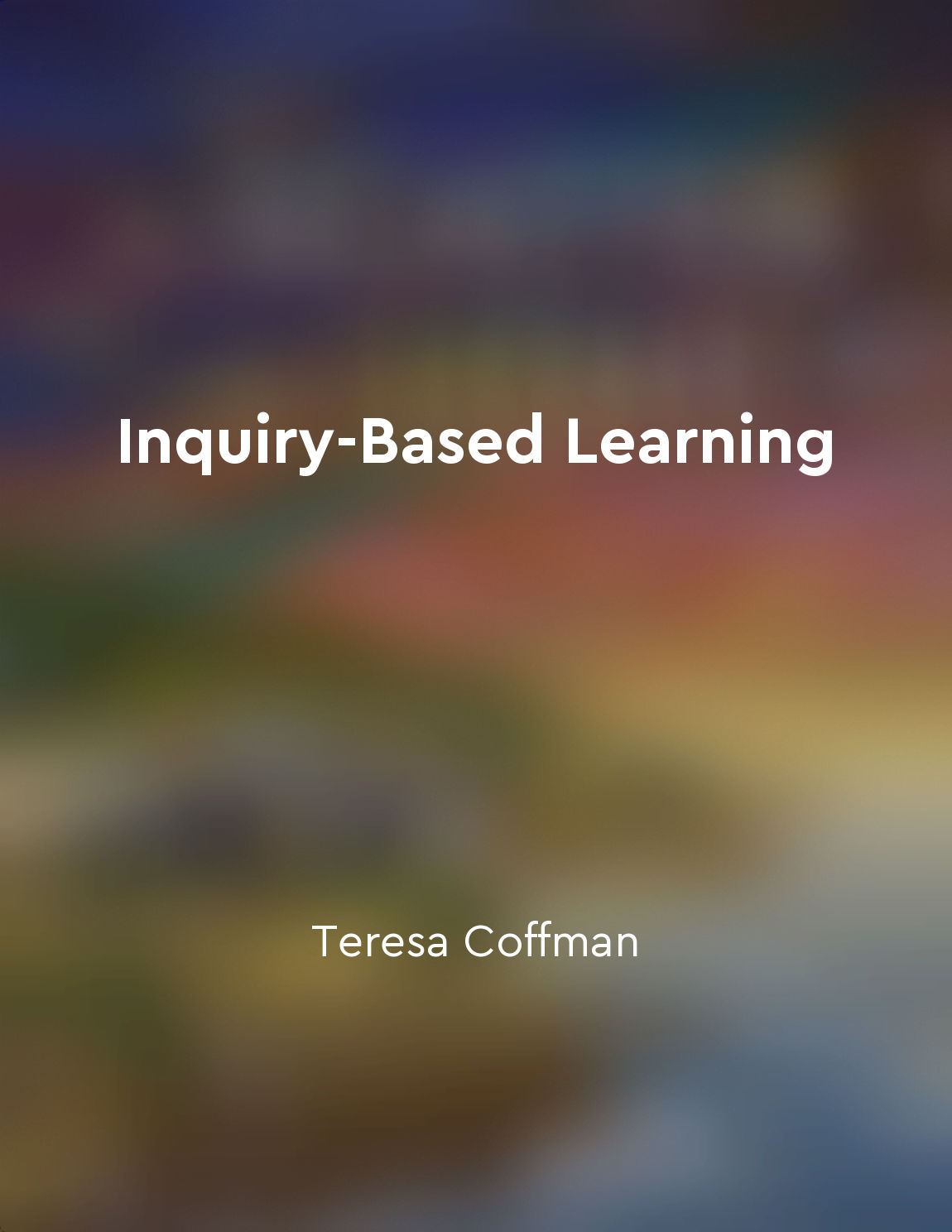Assessment is ongoing and varied from "summary" of Inquiry-Based Learning by Teresa Coffman
Assessment within an inquiry-based learning environment is not a one-time event, but rather an ongoing process that unfolds throughout the entire learning experience. It is continuously intertwined with the inquiry process, providing valuable feedback to both students and educators. This ongoing nature of assessment allows for a deep understanding of student growth and development over time. By collecting data at various points throughout the inquiry process, educators can gain insights into student thinking, problem-solving strategies, and areas of strength and growth. Moreover, assessment in an inquiry-based learning setting is varied in its forms and methods. It goes beyond traditional tests and quizzes to include a range of authentic assessments that align with the goals of inquiry. These assessments may take the form of student reflections, presentations, projects, collaborative work, and peer evaluations. By incorporating a variety of assessment methods, educators can capture the diverse ways in which students engage with the inquiry process and demonstrate their understanding. The varied nature of assessment also allows for multiple entry points for students to showcase their knowledge and skills. While some students may excel in traditional written assessments, others may demonstrate their understanding more effectively through hands-on projects or oral presentations. By providing a range of assessment options, educators can better cater to the diverse learning styles and preferences of their students, fostering a more inclusive and equitable learning environment. Furthermore, the ongoing and varied nature of assessment encourages a growth mindset among students. Instead of viewing assessment as a judgment of their abilities, students learn to see it as a tool for reflection and improvement. Through regular feedback and self-assessment, students are able to track their progress, set goals for growth, and take ownership of their learning journey. This shift in perspective empowers students to become active participants in their own learning, leading to greater motivation and engagement.- Assessment in an inquiry-based learning environment is characterized by its ongoing nature and varied forms. It serves as a tool for feedback, reflection, and growth, allowing students to demonstrate their understanding in multiple ways. By embracing this holistic approach to assessment, educators can better support student learning and foster a culture of inquiry and continuous improvement.
Similar Posts
Collaborate with colleagues to improve teaching practices
One of the most powerful ways to enhance your teaching is by working closely with your colleagues. By collaborating with others...
Language proficiency opens doors to opportunity
Language proficiency is a powerful tool that can open doors to a world of opportunities. When individuals possess a high level ...
Enhancing emotional intelligence
Enhancing emotional intelligence involves developing the ability to understand and manage one's own emotions, as well as the em...

Reflection enhances learning outcomes
Reflection is a powerful tool that can significantly enhance the outcomes of learning experiences. When students take the time ...
Promoting selfregulation and self-assessment
Promoting self-regulation and self-assessment is a critical aspect of fostering independent and reflective learners. By encoura...
Revision strategies for Social Science
Revision strategies for Social Science are crucial for mastering the subject. The first step is to review your notes and textbo...

